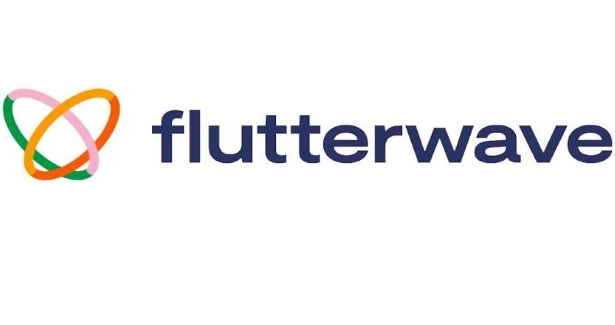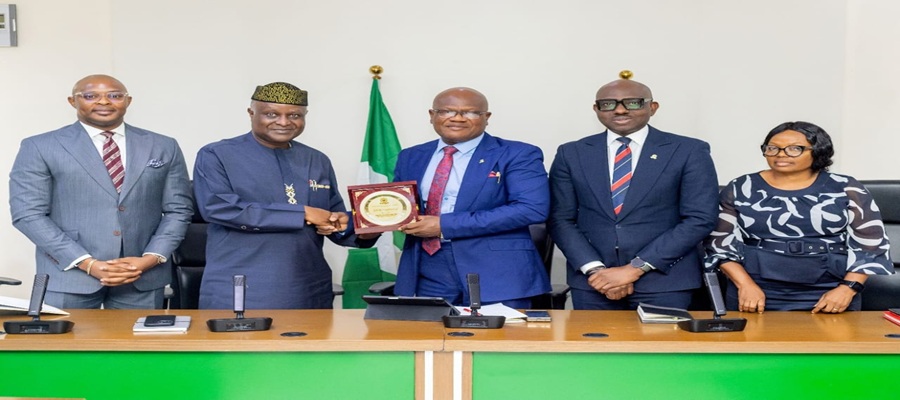E-Financial
NDIC Grants More Rebate on Insurance Premium for DMBs

Nigeria Deposit Insurance Corporation (NDIC) has further reduced the deposit insurance premium rate to all Deposit Money Banks (DMBs) in Nigeria as part of efforts toward contributing to financial system stability and promoting public confidence in the banking industry.
This premium reduction was initiated to consolidate on the gains achieved by the Corporation’s migration from Flat Rate Premium System (FRPS) to Differential Premium Assessment System (DPAS).
The DPAS approach takes into consideration the risk each bank poses to the system and encourages banks to adopt sound risk management practices.
Alhaji Umaru Ibrahim, managing director/chief executive, NDIC, disclosed this during the last Financial Correspondents Association of Nigeria (FICAN) Workshop held in Katsina State.
Ibrahim also said that the Board of the Corporation had granted further relief to the DMBs at its last meeting held in September 2014; adding that the Board had reduced the insurance premium basis rate from the existing 40 to 35 basis points and the new premium rate would take effect from January this year.
According to him, the insurance premium rebates were part of the NDIC major contributions toward improving the intermediation role and other banking related activities of the DMBs.
The NDIC Chief Executive pointed out that Principle 11 of the Core Principles for Effective Deposit Insurance System requires Deposit Insurance Agencies (DIAs) to set aside adequate funds to ensure depositors’ prompt reimbursement in the event of any bank failure.
He also opined that the Corporation would from 2015 set new coverage levels for the DMBs in view of their relatively large volumes of deposits.
It would be recalled that the Corporation began the insurance premium rebate since the commencement of DPAS in 2008 but the import began in 2010 sequel to the Board’s decision to contribute to the Financial Stability Fund that was spearheaded by the Central Bank of Nigeria (CBN).
The Corporation had supported the fund through the reduction of premium base rate from 50 to 40 basis points to reduce the premium burden on the DMBs.
By 2012, 2013 and 2014, the Corporation had granted a total rebate of N53 billion, N63.6 billion and N75.98 billion respectively; thus a cumulative rebate sum of N192.6 billion to the DMBs.
The Corporation administers three (3) types of funds, namely: Deposit Insurance Fund (DIF) for DMBs, Special Insured Institutions Fund (SIIF) for MFBs and PMBs and Non-Interest Deposit Insurance Fund (NIDIF) for Non-Interest Banks.
Therefore, premium collection from the insured banks contributes substantially to the funds available to the NDIC to discharge its mandate. At present, the Corporation covers 97% of the bank depositors which is an indication of adequate coverage and appropriate pricing.
E-Financial
Flutterwave Rises from Lagos Startup to Africa’s Fintech Powerhouse

Flutterwave has transformed from a modest Lagos venture into one of Africa’s most valuable fintech firms, processing billions in transactions yearly across 30+ countries and 150+ currencies.

Flutterwave
Founded in 2016 by Iyinoluwa Aboyeji, Olugbenga “GB” Agboola, and Adeleke Adekoya, it tackled Africa’s fragmented payments—siloed banks, mobile money gaps, and unreliable cross-border flows—with a unified API for seamless collections, payouts, and settlements.
Founding Vision
The trio spotted the pain: Aboyeji’s Andela faced border delays; Agboola drew from PayPal/Google; Adekoya handled compliance. Early wins included Uber Nigeria payouts from a Lekki co-working space, proving scalability amid lean ops.
Growth Milestones
2017–2020: $10M seed/Series A fueled West Africa push; Agboola took CEO helm post-Aboyeji; COVID boosted e-commerce volumes.
2021–2022: Unicorn at $1B+ (Series C, $170M); $3B+ valuation (Series D, $250M); partnerships with Microsoft, Uber; Send App for US diaspora.
2025–2026: Profitability focus yields better margins; 34 US licenses; Mono acquisition ($25–40M) bolsters open banking.
Challenges Overcome
Regulatory hurdles hit: Kenya 2022 freeze (cleared); Nigeria fraud claims (resolved, controls enhanced); culture probes led to reforms with ex-Mastercard/Stripe hires. These underscore multi-jurisdiction risks like FX curbs and cyber threats.
Nigeria’s Fintech Role
Flutterwave anchors alongside Paystack (Stripe-owned), Moniepoint, amid CBN cash curbs and AfCFTA trade boosts. Dual HQ in Lagos/SF eyes IPO post-profitability, cementing it as Africa’s payments backbone.
E-Financial
CIBN Pledges Full Support to New ACAMB Leadership, Backs Ambitious Roadmap

Chartered Institute of Bankers of Nigeria (CIBN) has pledged its full support to the Association of Corporate and Marketing Professionals in Banks (ACAMB) following a high-level strategic meeting between the leadership of both bodies.

New ACAMB Leadership
The high profile meeting, which took place on Tuesday at the CIBN Building, Lagos, served as a formal introduction of the new ACAMB Executive Committee to the CIBN leadership and marked the beginning of a renewed collaborative alliance.
Leading a delegation of the newly inaugurated ACAMB EXCO and Board of Trustees, the President, Jide Sipe, described the visit as a crucial first step in his tenure, aimed at contributing significantly in giving flight to his vision and that of ACAMB.”
“When we assumed office, one of the first things we agreed on was the need to visit key stakeholders”
“However, before reaching out more broadly, we felt it was important to begin with our primary constituency and core stakeholders. We want them to understand the direction we are taking and to support the work we are doing, so that ACAMB can achieve greater success than it has in the past”
“We couldn’t have properly started our tenure without this very important meeting with the CIBN,” Sipe stated
Sipe introduced the newly constituted ACAMB Exco, which includes, the 2nd Vice President, Morolake Phillip-Ladipo; General Secretary, Olugbenga Owootomo, Assistant General Secretary, Ademola Adeshola; Publicity Secretary, Abiodun Coker, and Executive Secretary, Fadekemi Ajakaiye
During his address, Sipe unveiled an ambitious roadmap for the association, highlighting a new direction focused on youth engagement, professional development, and industry advocacy.
Responding, the CIBN President, Professor Pius Deji Olanrewaju, who warmly received the ACAMB team, commended their forward-thinking vision as he noted that, the association would be focusing on critical areas such as reputational management, sustainable corporate practices, and governance reforms
Olarenwaju also commended ACAMB’s collaboration with CIBN in information management, saying it had raised standards across Nigeria’s banking sector.
“ACAMB’s support has given CIBN and the banking sector brand equity,” he said, praising the association’s record in reputation management.
He recalled ACAMB’s role in addressing crises within the sector, describing the partnership as strategic and beneficial.
He further pledged support for ACAMB’s 30th anniversary in September 2026, its AGM, and other programmes, including fundraising initiatives.
Olarenwaju also promised backing for ACAMB’s capability development and undergraduate mentorship schemes.
“I want to assure you that everything you have presented today has been clearly noted and will be acted upon”
“We are fully committed to working closely with you so as to translate these discussions and vision into measurable progress. Our shared goal is to strengthen the sector, protect its reputation, and enhance its public image in a meaningful and lasting way”
“This meeting discussed various initiatives and reforms crucial for the future of our industry, including the need for continuous training and adaptation to new programs,” Prof. Olanrewaju said.
The meeting concluded on a high note, with both parties expressing gratitude and a firm commitment to deepening their collaboration for the advancement of the banking industry in Nigeria.
E-Financial
Kuda Bank Teams Up with Lovers & Frnds for Inclusive Valentine’s R&B Bash

Kuda Microfinance Bank partnered with Lovers & Frnds for a Valentine’s edition event on Sunday, February 15, at Space Hub Lekki, Lagos, redefining celebrations around love, friendship, and social connections beyond romance.

Kuda Bank
The R&B-themed gathering drew couples, friend groups, and solo attendees with music sets from DJs like TGarbs, games, gift exchanges, and colour-coded tags—red for relationships, yellow for mingling singles, orange for non-minglers—to spark easy interactions.
Kuda activated a branded photo booth, merchandise giveaways, prize activities, and complimentary drinks for Premium loyalty tier customers, while vendors used Kuda Business POS terminals for seamless cashless payments.
Senior Brand Manager Emmanuel Femi-Adejobi said: “We partner with experiences matching our customers’ lifestyles in music and entertainment, creating spaces they genuinely connect with—we’ll keep supporting how they live and celebrate.”

 E-Business2 days ago
E-Business2 days agoAfDB, UNDP Launch $10Bn AI Initiative for Africa

 News3 days ago
News3 days agoNITDA Urges Stronger State Partnerships as Key to Digital Economy Goals @ South-South Stakeholders Forum

 Telecom3 days ago
Telecom3 days agoGSMA Launches Innovation Fund to Accelerate Green Transition Through Mobile Technology

 Telecom3 days ago
Telecom3 days agoProf. Adeyanju is Strengthening Nigeria’s Digital Backbone for a Connected Future in Two Years of Purposeful Leadership

 E-Business3 days ago
E-Business3 days agoFirm Identifies RenEngine Loader Distributed Through Pirated Games and Software

 Telecom2 days ago
Telecom2 days agoGrey Expands Cross-Border Banking with USD Accounts, USDC Support

 E-Financial3 days ago
E-Financial3 days agoFidelity Bank Launches HerFidelity Apprenticeship Programme 2.0 to Boost Women Entrepreneurship

 E-Financial3 days ago
E-Financial3 days agoTAJBank Secures A1 Ratings from Agusto, Datapro



























